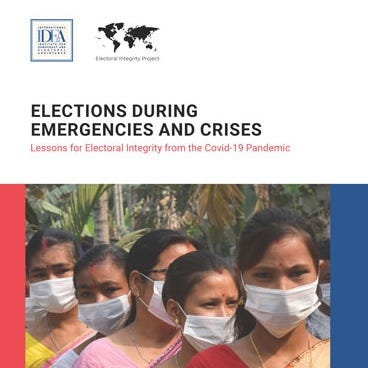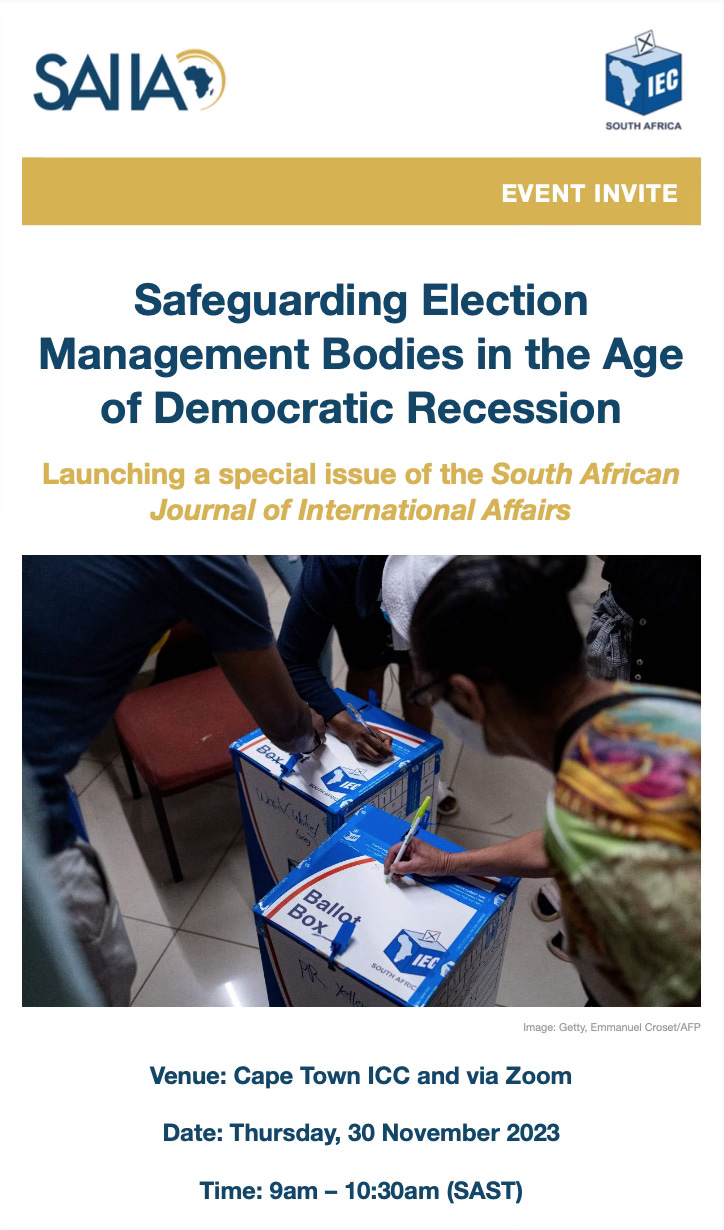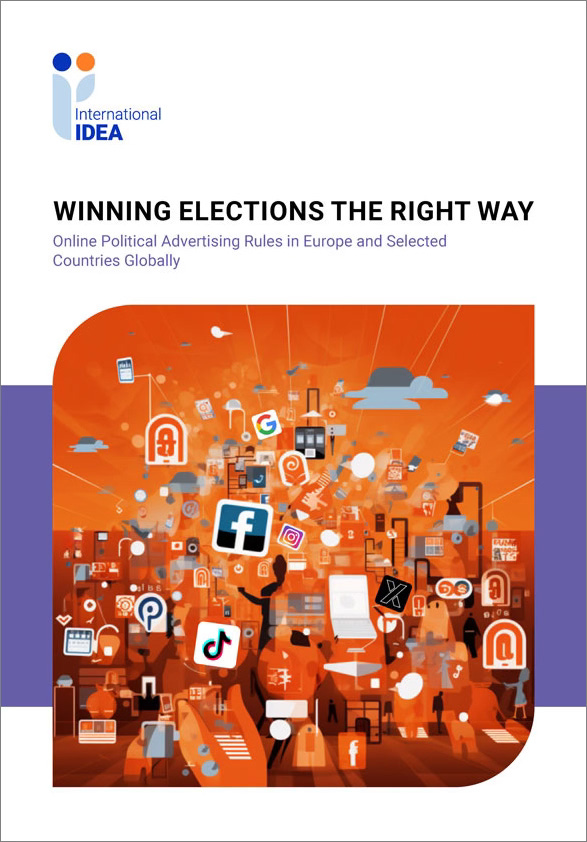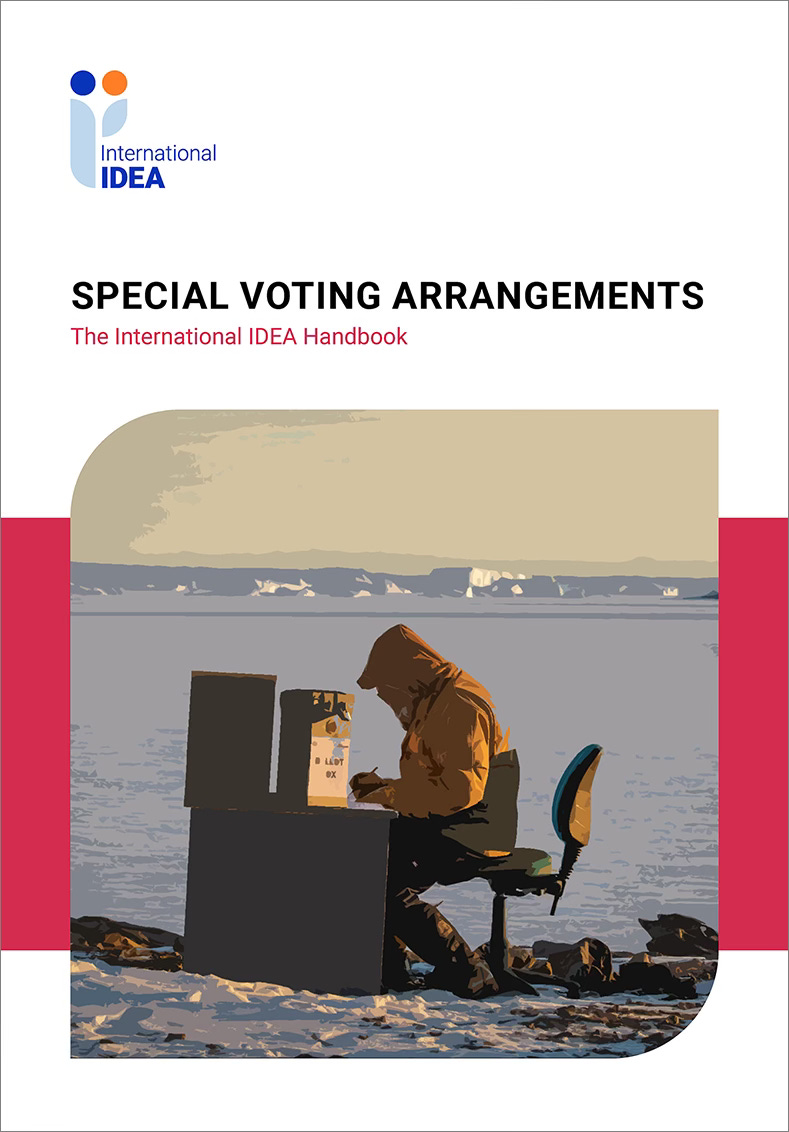2023 International Institutional Engagement Award


The Electoral Integrity Project was honoured to receive the 2023 International Institutional Engagement Award at the 19th International Electoral Awards Ceremony, held in Lisbon on November 15th 2023.
Professor Toby James received the award on behalf of the Electoral Integrity Project and International IDEA (and in particular, Toby James, Alistair Clark, Erik Asplund and Holly Ann Garnett).
The event was organised by the International Centre for Parliamentary Studies (ICPS). The award is designed to recognise the work of the international electoral community by honouring their significant contribution to the democratic process on an international level. The EIP received the reward in recognition of the work done during the pandemic with International IDEA on the Covid and Elections Project. The team produced policy reports, country case studies, a tracker website, blogs and research articles to enable lessons to be learned around the world on how to run elections. The work was consolidated into a 700-page volume setting out 11 recommendations for how elections can be prepared for future emergencies, such as climate change, war and possible future pandemics.
Special Issue Launch Event in SAJIA - Save the Date!
The Electoral Integrity Project has been working with the South African Electoral Commission and A-Web on a special issue examining 'Safeguarding Election Management Bodies in the Age of Democratic Recession' edited by Toby James, Victor Shale and Khabele Matlosa.
Don't miss the launch event for the special issue in the South African Journal of International Affairs (SAJIA) on November 30th! Register here to join us for an insightful discussion on the critical themes explored in this special issue:
For more information, including a list and links to the articles: Safeguarding EMB’s Special Issue
Special Issue on Electoral Backsliding in Electoral Studies
EIP Directors Toby S. James and Holly Ann Garnett are pleased to announce a forthcoming special issue on "Electoral Backsliding" in Electoral Studies. As concerns about democracy's trajectory continue, this special issue delves into the vital yet underexplored concept of 'electoral backsliding.' The introductory article evaluates three rival theses, examining empirical datasets to provide insights into the trajectory of election quality. While findings suggest little support for electoral backsliding at the aggregate level, the importance of monitoring election quality patterns remains, reinforcing the need for a nuanced understanding of democratic narratives.
Learn more: Electoral Backsliding Special Issue
2024 EIP Fellowships Update
Thank you to everyone who applied for the 2024 EIP Fellowships! With over a hundred applications received, we appreciate your enthusiasm and support. As we navigate the selection process, we extend our gratitude to all applicants and those who helped spread the word about the fellowships.
Staff Changes at the EIP


A heartfelt thank you to Madison MacGregor, our Project Coordinator for the past three years, for her outstanding contributions to the EIP. As Maddy transitions to new endeavors, we warmly welcome Sofia Caal-Lam as our new Project Coordinator. Sofia recently completed an MA in Political Studies at Queen’s University, Kingston, and has been working at the EIP as Project Assistant since February 2022.
From our Partners
International IDEA
Varieties of Electoral Integrity Risk: Protecting Elections in Brazil
Case study, September 2023
This case study examines several kinds of risks to electoral integrity present in Brazil and the role that the Electoral Justice plays in preventing and combating them. It addresses the risks, describing in each case the preventive policies as well as occasions on which some risks have materialized as threats. The paper also highlights some crisis management procedures in particular timely communication and proactive tools. Finally, the study concludes with some lessons learned and challenges to be faced.
Timor-Leste: Resilience Built on Experience
Case study, August 2023
This case study of Timor-Leste (part of the Protecting Elections project) highlights how the institutional capacity of an electoral management body (EMB) to handle risks, challenges and crises can flow from the availability of skilled and experienced staff—rather than just from formal risk management processes.
The Global State of Democracy 2023 - The New Checks and Balances
The global state of democracy in 2023 is complex, fluid and unequal. Across every region of the world, democracy has continued to contract, with declines in at least one indicator of democratic performance in half of the countries covered in the Report.
What can be done to address the threats to democracy, both acute and chronic? The Global State of Democracy 2023 policy recommendations include: support for electoral processes, focusing on mechanisms that guarantee fair contests and participation; transparency and access to information in legislatures that would multiply the sources of accountability; full commitment from governments to protect civic space; and legal protections for the independence of institutions that protect elections, investigate corruption and supervise government programmes.
Winning Elections the Right Way - Online Political Advertising Rules in Europe and Selected Countries Globally
As political campaigning in the lead-up to elections has moved online, parties and candidates have found new and innovative methods for connecting with voters. However, new challenges have multiplied, with the regulation and oversight authorities struggling to keep up.
The main objective of this Report is to support legislators, oversight bodies and other regulators in developing rules for the regulation and oversight of online political advertising. It addresses questions including how to build on existing campaign regulation and what kind of unexpected consequences and challenges may occur; how to strike the right balance between regulation and protecting fundamental freedoms; how soft-law tools such as codes of conduct can help to increase campaign integrity and where they fall short; what an effective oversight institution looks like and how it is coordinated; and what sanctions can help to ensure effective enforcement.
Special voting arrangements – The International IDEA Handbook
Special voting arrangements (SVAs) are not new. Initiatives to make elections more inclusive and accessible have existed since the earliest days of recognized democratic elections, and a steadily increasing number of nations employ a range of alternatives to conventional voting.
This Handbook seeks to present policy recommendations and good practices to help ensure that SVAs are designed and implemented to ensure electoral integrity. It also seeks to disentangle and dispel some of the myths that develop around SVAs—perhaps unavoidably considering SVAs affect who can vote and how they can vote.
New Publications from EIP Researchers
Appiah-Thompson, C., Jose, J. (2023). The Role of Traditional Authorities in the Promotion of Electoral Justice and Peacebuilding in Ghana. In: Kilonzo, S.M., Chitando, E., Tarusarira, J. (eds). The Palgrave Handbook of Religion, Peacebuilding, and Development in Africa. Palgrave Macmillan, Cham. https://doi.org/10.1007/978-3-031-36829-5_18
Bartels, Larry M. et al. (2023). The Forum: Global Challenges to Democracy? Perspectives on Democratic Backsliding. International Studies Review. https://doi.org/10.1093/isr/viad019
Bernardo Jr., N. D., Bridgett A. King, and Gretchen A. Macht. (2023). Assessing Precinct Consolidation Strategies Through Simulation Optimization.Election Law Journal: Rules, Politics, and Policy. Ahead of print. http://doi.org/10.1089/elj.2022.0015
Campion, S., & Attahiru Muhammadu Jega. (2023). African election management bodies in the era of democratic backsliding, South African Journal of International Affairs. Ahead of Print. DOI: 10.1080/10220461.2023.2274852
Erlich. A, Nicholas Kerr, Saewon Park. (2023). Weaponizing post-election court challenges: Assessing losers’ motivations, Electoral Studies, Volume 86. Ahead of print. https://doi.org/10.1016/j.electstud.2023.102676.
Garnett, H. A., & Toby S. James. (2023).Electoral backsliding? Democratic divergence and trajectories in the quality of elections worldwide, Electoral Studies, Volume 86. https://doi.org/10.1016/j.electstud.2023.102696.
Gerenge, R. (2023). The role of the African Union in tackling democratic recession in Africa, South African Journal of International Affairs. Ahead of Print. 10.1080/10220461.2023.2267525
James, T. S., Khabele Matlosa & Victor Shale. (2023). Safeguarding election management bodies in the age of democratic recession, South African Journal of International Affairs. Ahead of Print. DOI: 10.1080/10220461.2023.2278594
James, T. S., & Holly Ann Garnett. (2023). Are polarised elections the hardest to deliver? Explaining global variations in electoral management body performance, South African Journal of International Affairs. Ahead of Print. DOI: 10.1080/10220461.2023.2271496
James, T. S., Holly Ann Garnett, Erik Asplund & Sonali Campion. (2023). Election staff training: Tracing global patterns of institutionalisation, South African Journal of International Affairs. Ahead of Print. DOI: 10.1080/10220461.2023.2269890
King, B. A. & Kelly Ann Krawczyk. (2023). Public Administration, Civil Society, & Democracy: Comparative Perspectives through International Service Learning, Journal of Comparative Policy Analysis: Research and Practice, DOI: 10.1080/13876988.2023.2253163
Magni, G., & Reynolds, A. (2023). Candidate Identity and Campaign Priming: Analyzing Voter Support for Pete Buttigieg’s Presidential Run as an Openly Gay Man. Political Research Quarterly. Ahead of print. https://doi.org/10.1177/10659129231194325
Martínez i Coma, F., Diego Leiva Van De Maele, The Global Dataset on Turnout (GD-Turnout), Electoral Studies, Volume 86, 2023, https://doi.org/10.1016/j.electstud.2023.102681
Mauk, M., & Grömping, M. (2023). Online Disinformation Predicts Inaccurate Beliefs About Election Fairness Among Both Winners and Losers. Comparative Political Studies. https://doi.org/10.1177/00104140231193008
van Lit, J., Carolien van Ham & Maurits J. Meijers. (2023). Countering autocratization: a roadmap for democratic defence, Democratization, DOI: 10.1080/13510347.2023.2279677
Thank you for being a part of the Electoral Integrity Project community. For more updates, visit our website or follow us on Twitter @ElectIntegrity.








